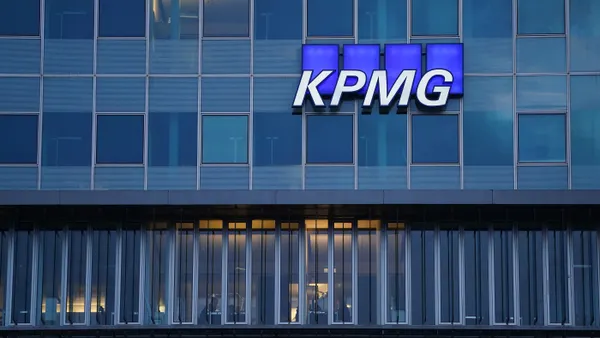Dive Brief:
- The resulting squeeze from inflation on profitability is more likely to lead CEOs and CFOs to cut down on investments in areas such as sustainability and mergers and acquisitions (M&A) rather than those in technology or workforce spending, results from a June Gartner study released Monday found.
- Thirty-nine percent of CFOs and CEOs surveyed indicated sustainability would be one of the first areas where spending was reduced, the study of 128 executives found, making it the second most popular area to reduce investments besides M&A.
- Executives’ rating of sustainability as a category to reduce investment comes as environmental, social and corporate governance (ESG) spend is ostensibly ramping up, with January estimates by Bloomberg predicting ESG will hit $41 trillion in assets by the end of the year and surpass $50 trillion by 2025.
Dive Insight:
Forty-one percent of executives surveyed indicated they would reduce M&A spending in the face of economic pressure — making it the top category where organizations would look to tamp down investment.
Protecting workforce and talent development came out as a top priority for CFOs, according to the survey, with 46% of executives noting they would cut investments in this category last. Technology spend was another category where CFOs were reluctant to pull away resources, with only 23% of executives surveyed indicating technology investments as an area where they would lower their spending.
CFOs and CEOs both rated sustainability as top strategic priorities earlier this year, according to another Gartner survey released in May, revealing a dichotomy between the areas executives may view as most impactful versus where they may look to funnel resources in times of economic uncertainty.
Sustainability initiatives or efforts to curb organizations’ environmental impact often represent a significant upfront cost with a lack of immediate payoff, according to the Gartner report, making them a less attractive category to prioritize in times of economic uncertainty.
Regulators such as the Securities and Exchange Commission (SEC) have also recently proposed new requirements for ESG disclosures, adding an additional layer of complexity for CFOs looking to balance organizational spend against a growing list of economic challenges. Inflation has continued to skyrocket, with the Consumer Price Index (CPI) ballooning 9.1% in June, stoking growing fears of an incoming recession.
Federal Reserve Chairman Jerome Powell stated the Fed was “committed and will succeed” to getting inflation down in a June 9 webcast, but recent research from Fannie Mae — while optimistic inflation will fall to 1.6% by the end of next year — predicted the U.S. economy will likely tip into a recession in the first quarter of 2023.
Economists and bank executives still remain divided about the probability, however. JPMorgan CFO Jeremy Barnum claimed the bank saw “no evidence of actual weakness” following its second quarter earnings call, according to a July 14 report by the New York Times, despite the financial institution reporting a relatively weak quarter. Card network American Express noted cardholder spend increased 30% year-over-year in its most recent earnings, meanwhile, despite a 14% loss of net income, with CEO Steve Squeri stating he does not see that demand slowing in the near future.















